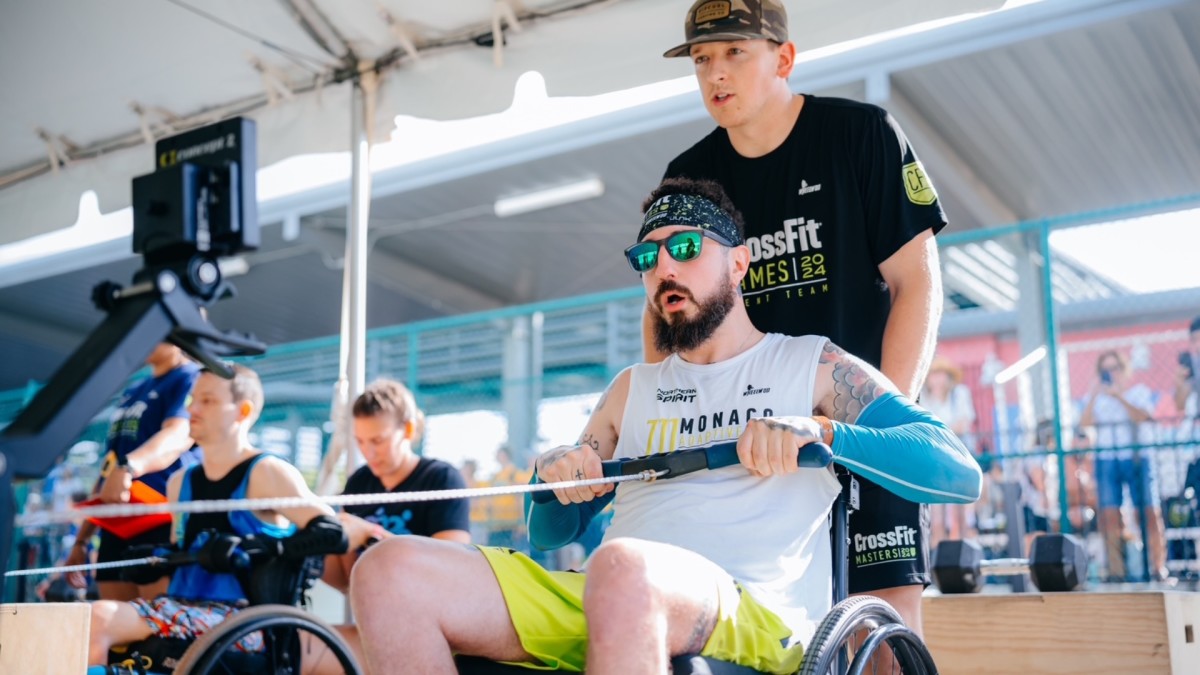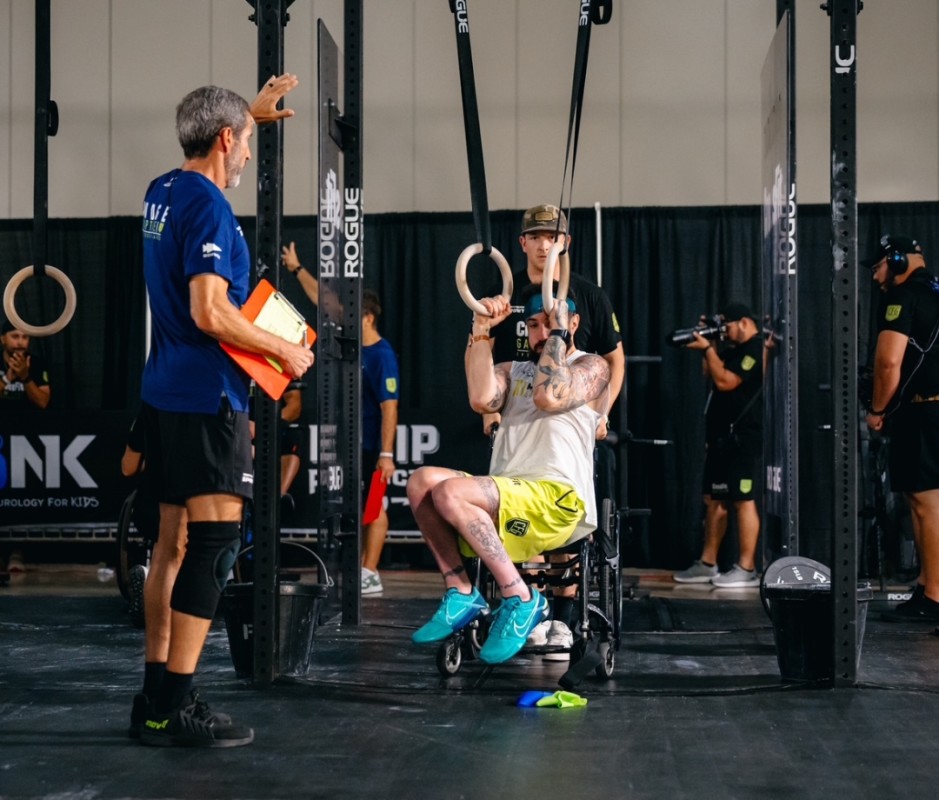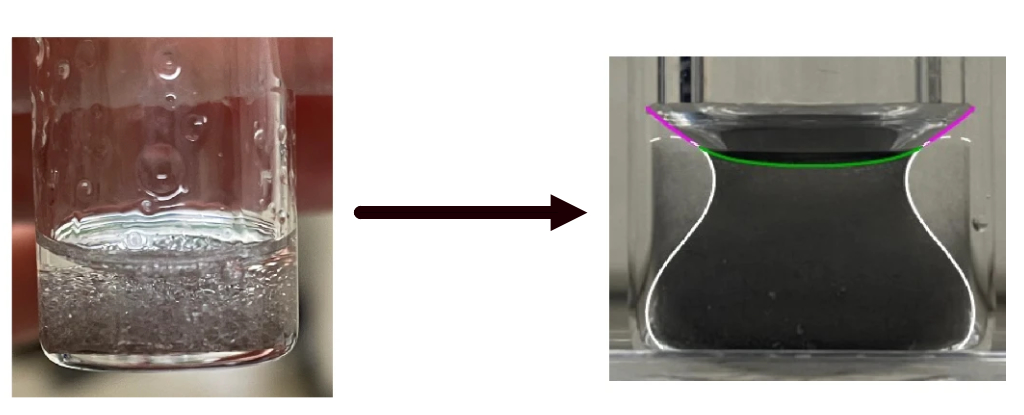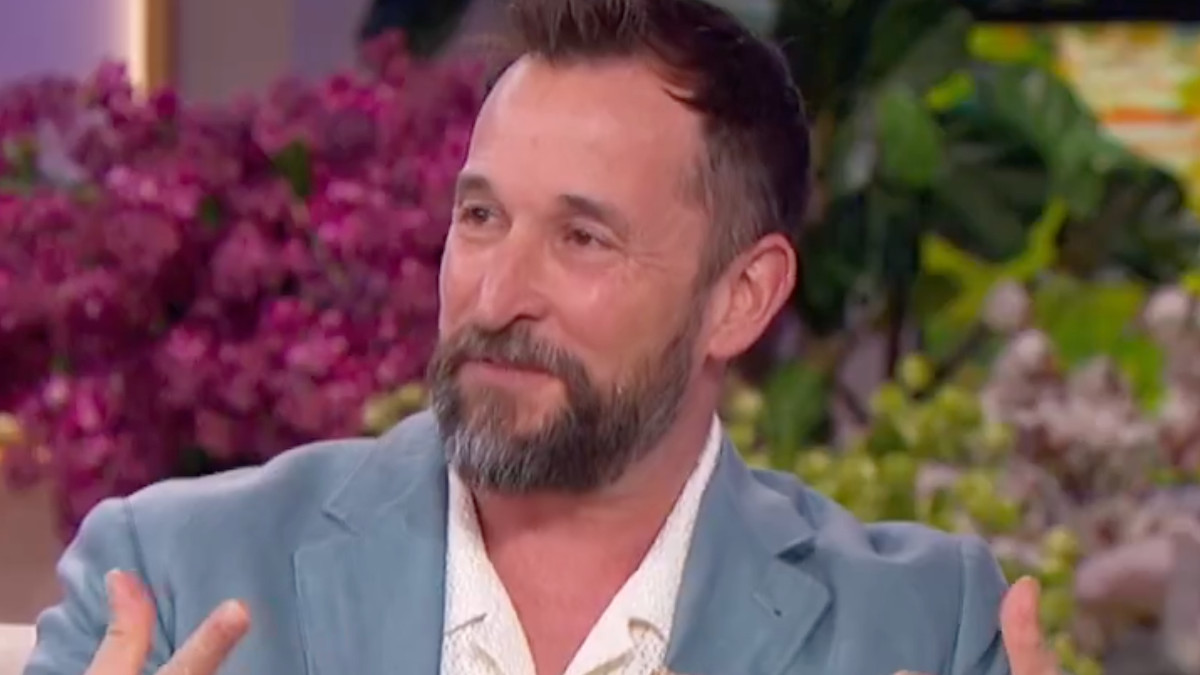After a Rare Diagnosis, This Man Found Strength in Fitness. Now, His Story Is Inspiring Others
"Limitations are meant to be broken."

Anthony Monaco was a very active teen—involved in soccer, wrestling, and even cross country—but he always felt a little awkward physically. It started with running a little differently than the kids around him. Then, his head started to move uncontrollably. As he got older, his walking worsened, even garnering the attention of those around him.
When he was 19, he was halfway through a tattoo apprenticeship when he was diagnosed with Friedreich's Ataxia (FA)—a degenerative neuromuscular disorder that's debilitating and life-shortening. At the time, the genetic disease was still relatively rare, and even today, it's estimated that only 15,000 people globally are affected by its life-altering symptoms.
"The doctor told me that I had a progressive neuromuscular disease," Monaco recalled. "He said you're eventually not going to be able to walk, and I have to use a wheelchair, and I just kind of accepted it, I guess. He told me there was nothing I could do except for working out. At the time, I didn't work out at all because I was still walking."
A few years after he was diagnosed, he was wheelchair bound. That's when his love (and need for) lifting weights and working out began. While training wasn't exactly instinctive, Monaco quickly found that by strengthening his body, he could at least begin to manage his condition.

B.A.W Media
"I started working out on my own at a gym and going to physical therapy, but I knew there was more that I could be doing," he said. "I spoke to my therapist and asked if she had any recommendations for gyms that work with people with disabilities. She got me a list, and the first one on the list was this gym called Fit to Function, and it said that they do functional fitness to help your day-to-day life."
When Monaco first started training, he worked with Jenna Muri-Rosentha, a medical speech-language pathologist, certified brain injury specialist, and founder of Fit to Function. Soon after, he met coach Ben Bates, and after an intense sled pull session, the two became fast friends.
"The trainer-trainee relationship just kind of took off," Monaco said. "Not only were we training hard, but we were having fun...it's just two bros really, throwing down and throwing weights around when we work out."
Bates, who focuses on the competitive side of training, suggested Monaco try out for the Adaptive CrossFit Games—a competition where athletes with disabilities compete in modified CrossFit workouts, showcasing their athleticism and strength.
Although Monaco didn't qualify for the Games at first, another athlete dropping out put him back in the running. In September of 2024, Monaco and Bates made their way to San Antonio for the competition. Placing was never Monaco's goal; in fact, he just wants to push his body while he still can and show other people with FA that they're stronger than they think.
"I wouldn't say I really have any long-term goals for working out, I just want to keep doing it," he said. I want to keep doing it because I have to keep moving. I'm just going to keep doing the Open and trying to make it to the Games, and I think the first year that I don't make it to the Games is when I'll stop competing. I'm still going to work out and come here, but I won't do it from the competitive side."

B.A.W Media
According to Bates, when he first met Monaco, his movements were sluggish, and his strength was minimal. But after months of working together, his movement patterns improved, and exercises that were once a little unsteady and wobbly have become second nature. Now, exercises in the gym are easier, and daily activities like transferring from his wheelchair to his bed are more manageable.
"If you look at functional fitness, it's the functional movements that we see in daily life: pressing, pulling, hinging," Bates said. "So the stuff that we program kind of falls into those daily movement categories to begin with. Along with that, we're just trying to create a lot of variety so that we're covering all different planes of movement and all different sorts of movement patterns."
Bates says the work he's doing with Monaco has transformed his own life. Originally focused on strength and conditioning, primarily working with collegiate and high school athletes, Bates has since found his true calling in adaptive fitness.
"One of the things I've learned is that limitations are meant to be broken," Bates says. "There's this misconception that fitness has prerequisites with boxes that you need to check off, and that's not the case with adaptive fitness. You know, limitations are often meant to be challenged."
With the help of Bates, Monaco did just that, and he wants others with FA to know that adaptive fitness can help them, too.
"I want them to know that functional fitness will help your coordination," Monaco says. "Just the repetitive movement aspect of it will help with it, and just getting stronger will help with your everyday life. There's not necessarily a limit to what is possible for you."









































































